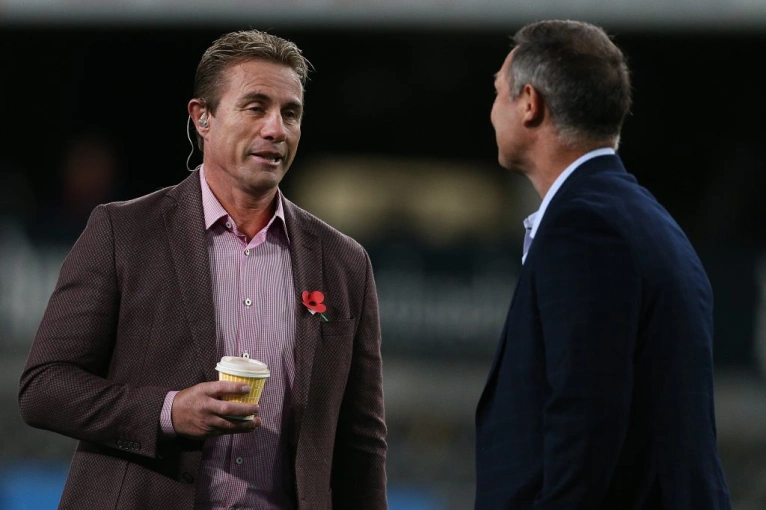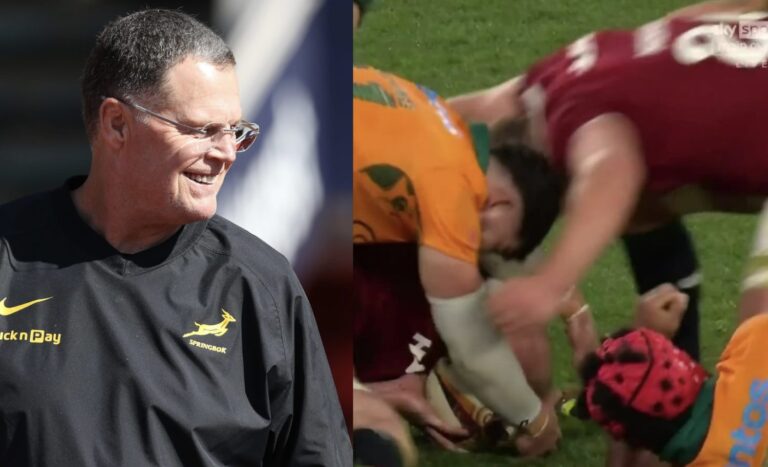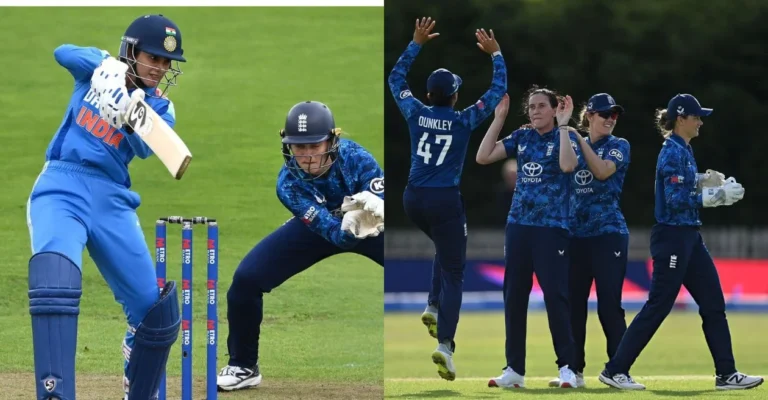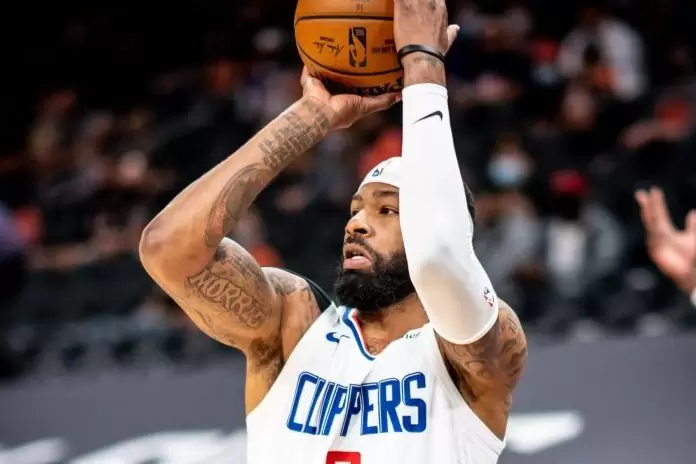
The battle lines have been drawn, and next weekend the first clash of arms will be heard on France’s controversial tour of New Zealand. The barbs have been flying in both directions: those from the Shaky Isles have been outraged by the selection of a national ‘B’ team for the visit, while French apologists remain pugnacious about the withdrawal of senior players from the tour.
‘Friendly banter’ does not do justice to the strength of feeling on both sides, and it undersells the very real threat presented to the credibility of the international game. The latest to give voice to the naked anger in New Zealand was ex-All Blacks scrum-half turned Sky Sports pundit Justin Marshall on The Breakdown:
“To be honest, I’m really disappointed. The side the French have brought is clearly underpowered. The average age is 25 [and] the average number of caps is 9.3.
“Forty-nine per cent of the players have got no caps at all. It’s a development team with a few senior players involved.

“In my mind, it’s complete ‘BS’ the way that they’re treating this tour, the way that the French always seem to have come up with excuses to not bring their top players, I feel they disrespect the international window.
“Our fans deserve to see their best players playing in our country against our All Blacks because we do that in November to them, we send our very best players for filling their stadiums and giving the fans the best experience they can get by seeing the best players in the world.
“The reality is, they’ve left 70% of their best players in France, and I just don’t feel that that is within the decency and the respect of the game.”
Fabien Galthié, the head coach of Les Bleus, had already stated the case from the French point of view at the announcement of his 37-strong touring party. With the Top 14 final on 28 June coming only one week before the first Test in Dunedin, players from the two top clubs in France, Union Bordeaux-Bègles and Stade Toulousain, had to be withdrawn from the original selection.
“We don’t have a choice other than picking players who have [already] finished their [Top 14] season,” he said. “We have no other solution. Or [maybe] the New Zealanders can help us to reinvent our domestic season schedule?”
The background to this narrative makes for essential reading. In 2020, World Rugby shifted the mid-year international window from June to July, precisely to avoid this kind of clash between the club and international versions of the game. Prior to Covid-19 epidemic, the previous two Top 14 finals were played out on 2nd June 2018 and 15th June 2019. The dates for the past four Top 14 finals have progressively extended the club season to the point it is once again invasive: from 25th June in 2021 to 28th June in 2024 and 2025. Wherever the international game gave ground, the Top 14 responded by making another land-grab.
That part of French national supremo’s predicament was created for him. The second layer of defence was much harder to understand or support.
“French rugby players potentially have 37 matches to play with their club, to which we [can] add 11 matches for the French XV. Who can play 50 rugby matches per season? Nobody.
“After 25 matches or 2,000 minutes played, the factors limiting a player’s performance and development are multiplied. This is a public health issue.”
The most concrete red line highlighted is 2,000 minutes played, at which point the limiting factors of player welfare become urgent and it is ‘a public health issue’. The five players most often mentioned in dispatches as possible additions to the tour are Romain Ntamack, Thomas Ramos and Thibaud Flament from Toulouse, and UBB’s pair of flying wings Damian Penaud and Louis Bielle-Biarrey.
With the Frenchmen having just completed a 29-round club season and the Six Nations at the beginning of the year to be lumped on to the scales, you would expect their playing time to comprehensively outweigh their counterparts in Super Rugby Pacific, who have played no international rugby at all.

There are three players [Ramos, Penaud and Bielle-Biarrey] who would approximate the 2,000-minute red line if they played the whole of a three-Test series in New Zealand, but Ntamack and Flament would still be well within acceptable parameters.
The comparison with equivalent players from the top two clubs in Super Rugby Pacific [plus Rieko Ioane] over 18 or 19 rounds of SRP may be surprising.

All those players would be comfortably passing Galthié’s point of no return if they were to start the three-match series in July, and then play through the entirety of the Rugby Championship and the November tour of Europe.
Take the investigation a stage further, and it is not too difficult at all to pull up the stone, look underneath and find a busy host of legitimate tour candidates at a well-managed club such as Toulouse.

That group alone would plug another 179 international caps into to the French effort in New Zealand, and none of them are close to red-lining. Forwards such as Marchand, Flament and Meafou, and backs such as Ntamack and Barassi could not but benefit from the experience and come back wiser warriors for the 2027 World Cup in Australia.
As ex-All Blacks wing Jeff Wilson pointed out on the same show as Marshall:
“The part I’m disappointed about is that if they [France] genuinely want to win a World Cup, at some point, [if] you want to give yourself the best opportunity to do that, you have to take on the top teams away from home – because in two years’ time a World Cup is being played in Australia, and that’s familiar territory to us.”
Although the UBB and Toulousain players recovering from the full 29-round experience of a gruelling Top 14 competition would be admittedly hard to integrate into the touring squad after the first Test at the Forsyth-Barr stadium, the figures for overall playing time suggest a far stronger squad could have been selected, even within Galthié’s own boundaries.
The selected group of next-level Top 14 hopefuls will still present a definite challenge to the All Blacks. Les Bleus will use a Springbok structure with at least six forwards, maybe even seven, on the bench, and they will look to pack the pine with size and power to get over the top of New Zealand in the last half-hour of the game.
The gameplan model will draw as much juice from an outstanding away win over Ireland in Dublin at the Six Nations as it is able. Galthié opted for a 7-1 bench split in that climactic match, with five starting forwards subbed off only eight minutes into the second half and a number seven [Oscar Jégou] replacing a centre [Barassi] at the same time.
Even if their top personnel are missing, the All Blacks will still encounter an unusual level of cohesion between French forwards and backs. It won’t be heavily structured but it will be instinctive, even among the very big 135kg+ behemoths of the pack. It was the appearance of those six French forward ‘finishers’, and their ability to mix raw power with the nuances of a back which turned the tide against the Irish. France scored 27 unanswered points and that was game, set and match.
That is 15 Ramos and nine Maxime Lucu, sandwiching a meaty filling of forwards Anthony Jelonch, Paul Boudehent and François Cros on the initial winning counter-ruck. Then the ball slips smoothly through the hands of 140kg leviathan Meafou, as it wings its way to the far left edge of the field and the deadly duo of Penaud and Bielle-Biarrey.
The ball is spun out via two forwards and two backs en route to number seven Boudehent on the left wing, and the key passer and kicker on the journey back across field are huge second row Meafou with an offload, and Jégou – the flanker impersonating a 12 – with the chip through to the Ireland goal-line. Even without any of those forwards available for the tour of New Zealand, France will still have a scaled down version of that connectivity in their attacking arsenal.
When the bench forwards needed to turn on the power tap, it became a true gusher.

First Meafou smashes Ireland skipper Caelan Doris out of the road on the carry, then prop Finlay Bealham is bounced out of the ruck as clean as a whistle by Jelonch. The Connacht man is still trying to find his compass when he gets the treatment for a second time from the same player, and can only stand and watch as Jégou plunges over from close range.
There is little doubt the French ‘B’ team will provide a more-than-useful workout for the All Blacks. There will be plenty of new sights and sounds to enjoy for the tourists, and the size of their forwards and use of a 6/2 bench will give New Zealand an important presentiment of the Springboks at the Rugby Championship.
But make no mistake, it will be test with a small ‘t’, rather than the full-blooded Test series between the crowned heads of European rugby and the mighty All Blacks it should rightly have been. It could have been one of the great ones. The real ‘oohs and aahs’ which would have accompanied the presence of a Meafou or a Bielle-Biarrey will be missing, and the international rugby calendar is all the poorer for it.






